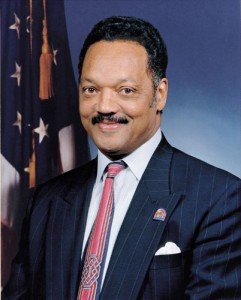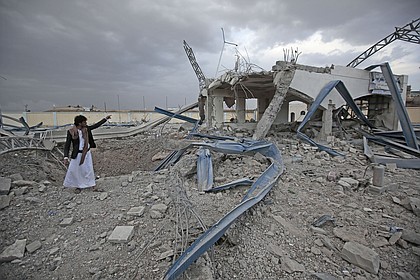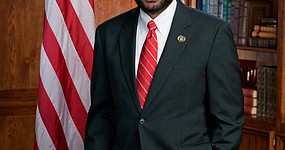Trump Plunges U.S. Deeper Into Forgotten Wars
Jesse Jackson | 4/25/2019, 8:09 a.m.
While Washington is consumed with reactions to the Mueller Report and the potential impeachment of Donald Trump, America is descending deeper into largely forgotten wars. In the last month, the president has decided to sustain our involvement in the most unconscionable humanitarian crisis in the world in Yemen and fueled even more violence in the civil war in Libya. Neither his actions nor the wars on the other side of the world get much attention. But they reveal the true dangers of allowing a president complete license in questions of war and peace.
Few Americans know that the United States is a participant in the bitter civil war in Yemen, a conflict that has savaged that impoverished country. Eighteen million people -- of a total population of some 27 million -- are now in need of humanitarian assistance, 3 million have been displaced and 7 million have no idea where their next meal will come from. More than 14 million lack access to safe drinking water and a deadly cholera epidemic has already begun.
The U.S. has backed the Saudi-led intervention into the civil conflict, largely by providing direct support for brutal Saudi airstrikes -- ordnance, targeting, aerial refueling and intelligence. The stated rationale provided for our participation is that the Saudi coalition is attacking rebels that it claims are backed by Iran. As Andrew Bacevich notes, Trump himself suggested that the real deal is he backs Saudi Arabia in this horror in exchange for their continuing purchases of American-made weapons: "I don't like the concept of stopping an investment of $110 billion into the United States," the president told reporters last year.
When Congress -- with bipartisan support -- passed a resolution under the War Powers Resolution calling for an end to U.S. participation in the carnage, Trump vetoed it, claiming that it was a "dangerous attempt to weaken [his] constitutional authority." The Congress failed to overturn his veto -- and the U.S. continues to abet the worst humanitarian catastrophe in the world.
In Libya, Trump just turned U.S. policy upside down with a phone call. The U.S. has backed the UN endorsed Government of National Accord while seeking an end to the destructive Libyan civil war. When the Libyan warlord Khalifa Haftar began an offensive against that government to capture the capital, Tripoli, Secretary of State Mike Pompeo forcefully restated U.S. opposition to that offensive, urging an immediate halt to military operations. One week later, Trump spoke on the phone with Haftar, praising him and their "shared vision" of the future.
Ironically, the reversal came just as Haftar's forces were beginning to lose ground. Worse, Haftar's offensive forced the government's militia to turn their attention to fighting him rather than focusing on ISIS terrorist cells in the country. Again, Trump is lining up with a Saudi favorite, even at the expense of sabotaging the policy of his own State Department.
Congress has failed to rein in executive war-making for many decades. Now in Yemen, Congress is once more allowing a president to usurp war powers that the Constitution gave to the legislature. And in both Yemen and Libya, presidential license only serves to add to the violence and destruction, and draw the U.S. ever deeper into conflicts we should never have engaged in.
Trump frequently claims that he intends to terminate our wars without end and without victory. But by vetoing the congressional resolution to end our involvement in the Yemen calamity and by bizarrely reversing U.S. policy in Libya, he is only extending the folly. And the United States continues to contribute to the violence that is spreading across the world. Dr. Martin Luther King taught that we must find an alternative to war and bloodshed. He would quote President Kennedy who said, "Mankind must put an end to war or war will put an end to mankind." I only hope we can learn this lesson before it is too late.
(You can write to the Rev. Jesse Jackson in care of this newspaper or by email at jjackson@rainbowpush.org. Follow him on Twitter @RevJJackson.)










